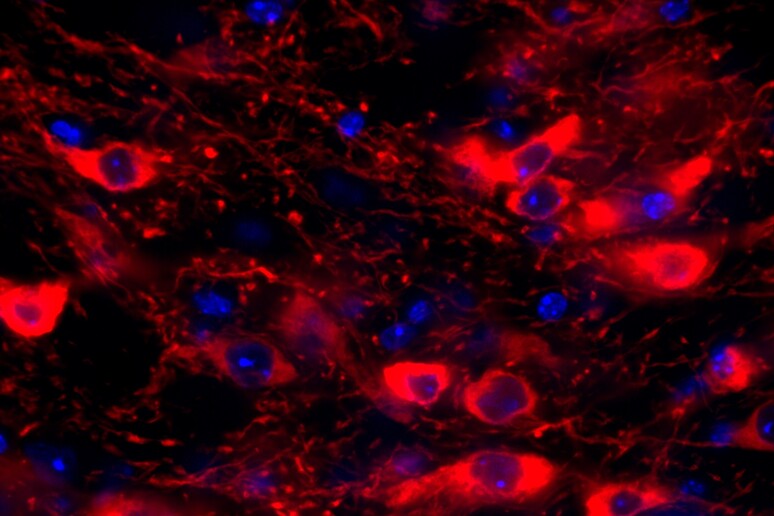Two new signs of Parkinson's disease have been identified in the brain, making it possible to develop new therapies able to halt the progression of the disease while limiting side effects.
The discovery, published in two articles in the journal Neurobiology of Disease, is the result of international research involving Italy, the United States, France and Japan.
The two signs are high levels of the amino acids D-serine and L-serine, which in Parkinson's patients compensate for the progressive loss of neurons that produce dopamine, the neurotransmitter that also plays an important role in controlling movement.
"Thanks to the results of this research, in future it will be possible to test innovative therapeutic approaches aimed at improving the clinical picture and combating the progression of this devastating disease more effectively," says research coordinator Alessandro Usiello, Professor of Clinical Biochemistry at the University of Campania Luigi Vanvitelli and Director of the Laboratory of Translational Neuroscience at Ceinge Biotecnologie Avanzate Franco Salvatore in Naples.
The Neuromed Mediterranean Neurological Institute in Pozzilli, Columbia University in New York, Keio University School of Medicine in Tokyo, the Institute of Neuroscience in Bordeaux, the Universities of Rome Tor Vergata and Cattolica in Rome, the 'Federico II' University in Naples and the University of Cagliari took part in the study.
Riproduzione riservata © Copyright ANSA













